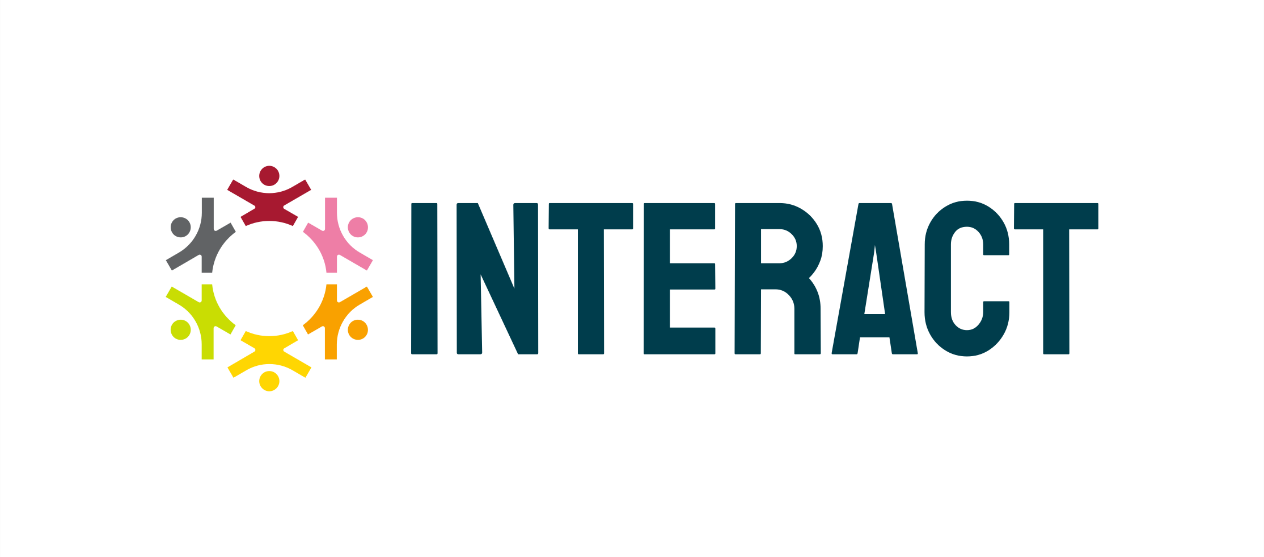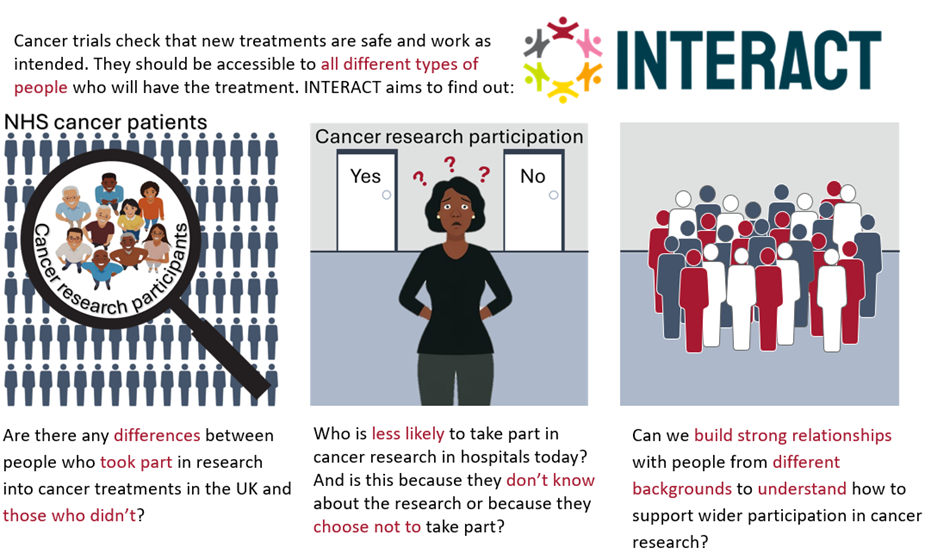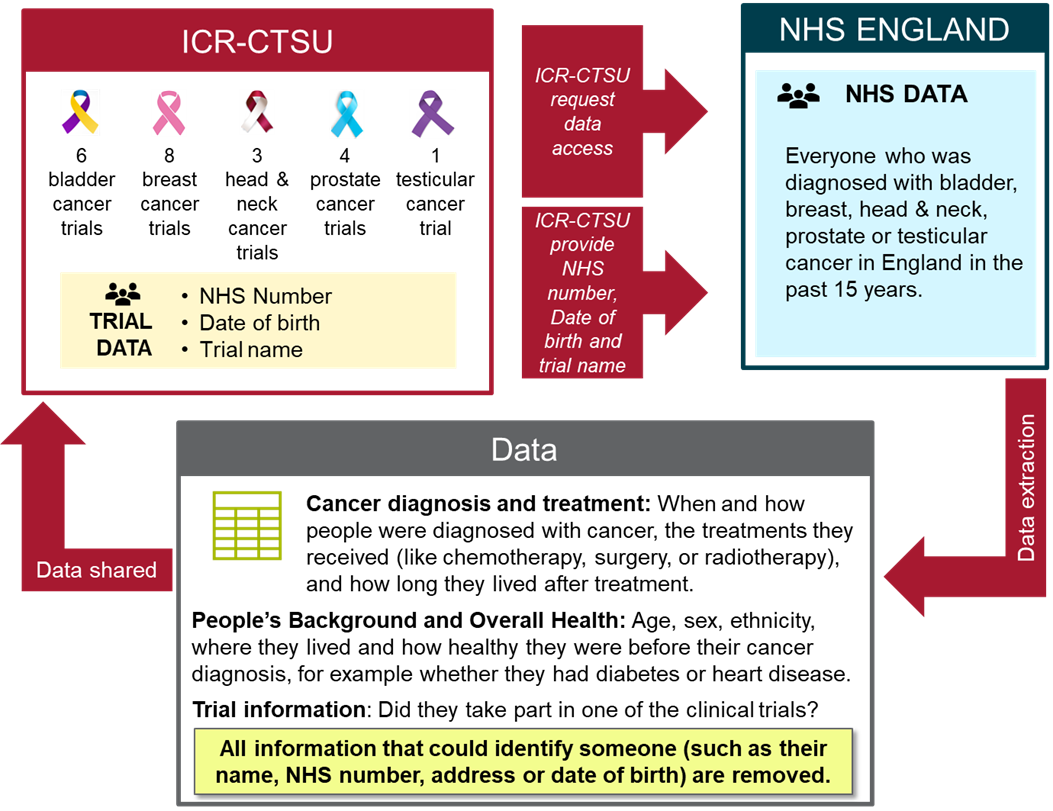
INTERACT - Understanding inclusivity in oncology clinical trials: A data-driven approach
Background
Cancer research studies check whether new treatments are safe and work as intended. People who take part in these studies should be similar to those affected by the cancer, from different ethnicities and backgrounds. This helps to make sure no-one is excluded and that the results of the research apply to all cancer patients.
What is INTERACT?
We want to find out whether any groups of people have been less likely to take part in cancer studies in the UK. Once we know if any groups of people are being excluded we can find ways to improve to ensure wider access to cancer research.
INTERACT aims to find out:
1. Have cancer studies been inclusive in the past?
We will review NHS data about people diagnosed with cancer in England in the past 15 years. We will compare peoples’ characteristics, including age, ethnicity and overall health, between those who joined research with those who didn’t. This will help us see if any people are less likely to be included than others. We will not have access to information that could identify people.
2. What is currently happening?
We will survey NHS hospitals to find out what they record about people’s characteristics and whether they take part in research. We will work with three NHS hospitals to understand who is being asked and who is choosing to take part in more detail. Only hospital staff will be able to look at individual patients’ data.
3. Building relationships
We want to build relationships with people from different backgrounds who can help us understand why some patients might not be joining research studies and what we can do to help.
We are currently seeking people from diverse backgrounds to advise on the research as it progresses.
INTERACT will take two years to complete.

Figure 1: Summary of the INTERACT project
INTERACT data notification
So we can find out whether cancer studies have been inclusive in the past, NHS England will draw information from NHS records about people’s cancer diagnosis, treatment, general health and background. We will share the NHS number, date of birth and trial name of anyone who took part in one of the research studies in the table below.
| Bladder/urothelial cancer | Breast cancer | Head and neck cancer | Prostate cancer | Testicular cancer |
|---|---|---|---|---|
| CALIBER HYBRID PHOTO RAIDER BOXIT POUT | c-TRAK TN FAST Forward IMPORT HIGH IMPORT LOW POETIC PRIMETIME PALLET EPHOS-B MAPLE | DARS COSTAR ART DECO | PACE-A, PACE- B, PACE-C PIVOTALboost PIVOTAL TOPARP | 111 Trial |
NHS England will link the information we provide to the data they hold. The data provided by NHS England to the ICR will not identify individuals but will show if they took part in a trial.

Figure 2: How data will be linked, whilst preserving individual anonymity.
We will not be able to identify anyone from the data we receive from NHS England, but if you took part in one of the studies listed and would prefer that your information was not shared with NHS England, please email the INTERACT team: [email protected].
Anyone who has chosen not to allow their NHS health data to be used for research will not be included in the data provided by NHS England. For more information visit the NHS website.
You can find out more about how we will protect your information here: https://www.icr.ac.uk/legal/privacy/research-privacy-notice.
Further information about the INTERACT project for healthcare professionals.